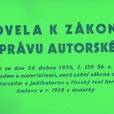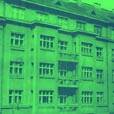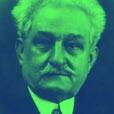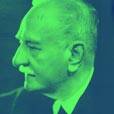History
2024
Shortening the name to OSA, z.s.
Shortening the name to OSA, z.s. better describes the current identity and history of the Society. The new, simpler name is more modern, easier to remember and better suited to current needs and communication trends. It follows the first republican name "Ochranné sdružení autorské".
 2021
2021
Monthly accounting of royalties introduced
The OSA was one of the first authors' organisations in the world to send monthly royalty payments to authors.
 2019
2019
Launch of an e-shop for the purchase of licences for reproduced music
The OSA is the only organisation to offer the possibility of licensing copyrighted works for reproduced music in public spaces through an e-shop. The e-shop includes an online calculator to work out how much a licence for both reproduced and live music will cost.
 2018
2018
OSA as a single collection point for all collective administrators in the Czech Republic
Users of musical works conclude only one licence agreement for live or recorded music events and receive one invoice for all domestic collective administrators. The OSA then forwards the royalties collected to the individual collecting societies according to their price lists.
 2010
2010
Quarterly royalty statements introduced
The OSA is the only collecting society in the world that regularly pays royalties to represented authors in March, June, September and December of each year.
 2010
2010
Creation of a grant programme to support music creation
Through the Partnership Grant Programme, OSA supports represented artists and their work, seeks out new talent and supports charitable projects.
 2009
2009
Cooperation with YouTube signed
Cooperation with YouTube signed
 2006
2006
OSA Annual Awards
This was the first year of the OSA Annual Awards, the only awards in the Czech Republic for composers, lyricists and publishers. The OSA Annual Awards recognise work in both classical and popular music, bringing together composers from different musical genres.
 1990
1990
The authors themselves take over the management of the OSA
In the period before November 1989, the OSA, like other cultural organisations in Czechoslovakia, was controlled by the ruling communist establishment.
On the initiative of the OSA's Civic Workers' Forum, a working assembly of represented authors met on 13 January 1990 and expressed confidence in the newly elected OSA committee. The administration of the OSA was thus fully returned to the authors.
On the initiative of the OSA's Civic Workers' Forum, a working assembly of represented authors met on 13 January 1990 and expressed confidence in the newly elected OSA committee. The administration of the OSA was thus fully returned to the authors.
 1956
1956
Renewed collaboration with CISAC and BIEM
Cooperation with the international organisations CISAC and BIEM has been renewed.
 1946
1946
Rebuilding the OSA after the Second World War
In a period of post-war vigour and optimism, the OSA operated under the name of the Copyright Protection Association. During the year, relations with foreign copyright societies, which had been interrupted by the war, were gradually re-established.
The OSA initiates a number of new principles and ideas which are gradually incorporated into the CISAC principles and become internationally recognised. On the last day of 1946, the OSA informs the Statistical Office that it has 293 members, 55 employees and a house with 28 rooms, 20 of which it uses and 8 of which it rents.
The OSA initiates a number of new principles and ideas which are gradually incorporated into the CISAC principles and become internationally recognised. On the last day of 1946, the OSA informs the Statistical Office that it has 293 members, 55 employees and a house with 28 rooms, 20 of which it uses and 8 of which it rents.
 1942
1942
OSA during the Protectorate
The OSA lost its independence under the weight of the war, and in 1942 the Reich Protector granted STAGMA permission to use music in the Protectorate and ordered the liquidation of the OSA.
The liquidation lasted three years - at least on paper and in reports to the Reich Protector. In reality, the OSA continued to exist. Its board of directors met in secret, as did most of its members. After the liberation of Czechoslovakia in 1945, it was enough to remove the notation "in liquidation" from the relevant registers and the OSA's activities continued.
The liquidation lasted three years - at least on paper and in reports to the Reich Protector. In reality, the OSA continued to exist. Its board of directors met in secret, as did most of its members. After the liberation of Czechoslovakia in 1945, it was enough to remove the notation "in liquidation" from the relevant registers and the OSA's activities continued.
 1933
1933
OSA's new headquarters
In an unprecedented show of solidarity, the authors sacrificed their royalties for 3 years in order to buy a house in Dr. Albín Bráf Street. Since 1950 this street has been called Ceskoslovenske armady Street. The building was a gift from the composers and poets of that time to their future generations.
 1929
1929
Co-founder of BIEM
OSA became one of the founding members of BIEM - the International Organisation for the Protection of Mechanical Reproduction Rights.
 1926
1926
Adoption of the Copyright Act, co-founding of CISAC
The OSA was actively involved in the preparation of the Copyright Act, which culminated in its adoption on 24 November 1926. It was a very successful law, well respected abroad, and the OSA played a major role in its creation. Authors of music were granted not only public performance rights, but also broadcasting and mechanical rights. This later proved to be very important in the relationship between authors and music publishers and the recording industry.
In the same year, the OSA became one of the founding members of CISAC - the International Confederation of Societies of Authors and Composers.
In the same year, the OSA became one of the founding members of CISAC - the International Confederation of Societies of Authors and Composers.
 1924
1924
Cooperation with other countries
10 reciprocal agreements for the mutual protection of repertoires with foreign partner organisations in Europe.
 1922
1922
Evolution
We can only admire the pioneering work of the founders and early members of the OSA. They were able to formulate the principles on which OSA still operates today. Thanks to the cooperative structure, artists' financial affairs remain in their own hands and they decide on their own copyrights. Gradually, a number of important musicians joined the OSA, including Leoš Janáček.
 1921
1921
Adoption of the Berne Convention
The birth of the OSA is almost identical to the establishment of the Czechoslovak Republic, but this creates an uncomfortable duality from a legal point of view, which affects the functioning of the OSA. Austrian legislation applied to the Czech lands, and Hungarian legislation to Slovakia and Subcarpathian Ruthenia. The ratification of the Berne Convention by Czechoslovakia in 1921 marked the beginning of long negotiations on a common copyright regime.
 1919
1919
Founding
The General Assembly of the Protective Association of Writers, Composers and Publishers of Musical Works was held on 9 October 1919. The founding members were Czech composers, writers and publishers, including the popular composer Karel Hašler. One of the first directors of the OSA was Otakar Dvořák, son of the composer Antonín Dvořák. The following year, the prominent Czech composer J. B. Foerster was elected chairman of the committee.